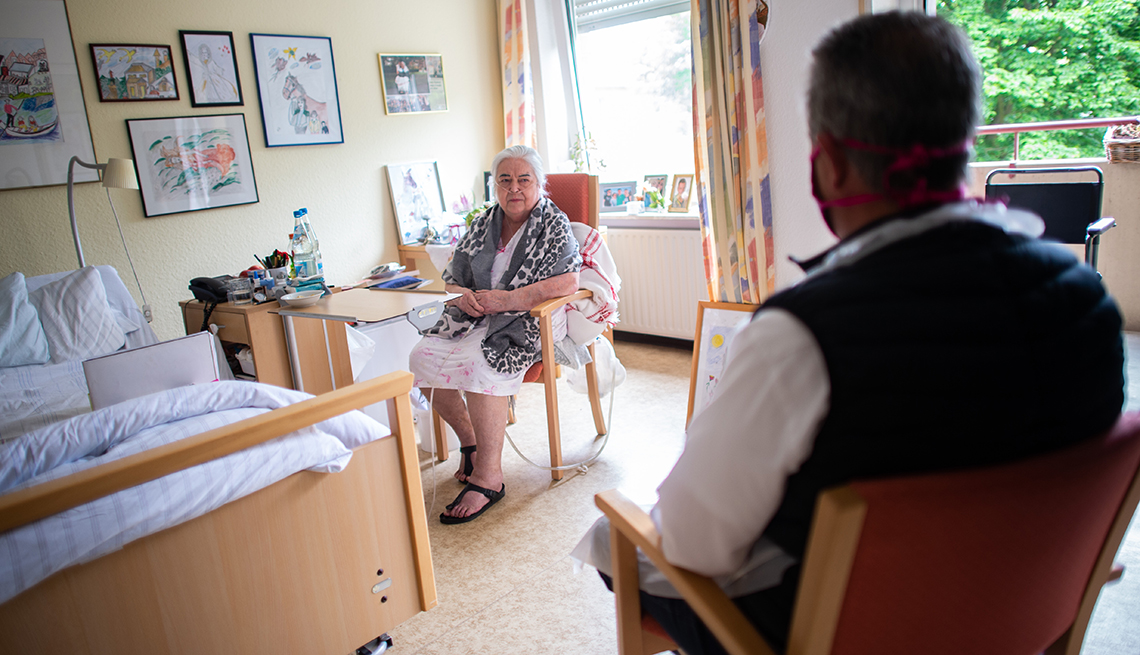BISMARCK, N.D. – The week after the 2021 Assembly closed, Gov. Doug Burgum, R-N.D., signed the “essential caregivers” bill.
The bill requires the Department of Human Services and long-term care facilities to rework their visitation policies during a declared emergency, including making residents more available for in-person visits.
The bill passed with overwhelming support, but now agencies and families must work out the new rules and their installation.
Lawmakers said the recent legislative session focused heavily on bills in hindsight. The new laws of the land don’t just look back at the last pandemic, but also looks forward to shape the next one.
This time last year, Lauri Schlosser was visiting her father, Lloyd, through the windows of his Bismarck nursing home.
She, like many other families, were locked out of the facilities and unable to see their loved ones during the height of the pandemic.
“The challenge on the drive there is, ‘okay what am I going to share with him today? What am I gonna bring up, talk about, and try to lighten the mood and give him something to think about,” Schlosser said.
For nine months, Schlosser would see her dad with a pane of glass separating them. but those visits were numbered.
In December, Lloyd died from the virus those restrictions were meant to protect him from.
“We finally got to be in his room the last 23 hours is what we got. So our family just took turns rotating. It was wonderful to be able to at least hold his hand, but we should’ve been able to do that all the long,” Schlosser said.
But those visitation restrictions are now a thing of the past.
Signed into law this week, if a skilled nursing or basic care facility need to restrict visitation, residents will be allowed to have one person “provide in-person physical, spiritual, or emotional support”. That person can either be a health professional or a relative.
“By having this out there, people will think twice and say ‘okay, how can we do this to try and balance the contact with people’s loved ones and families with the danger of an actual virus or whatever the future risk is,’” said Sen. Kristin Roers, R-Fargo.
As of this week, more than 65% of North Dakotans aged 70+ were fully vaccinated.
However, there’s an up-tick in nursing home COVID cases, and policies are still in place to close the doors if need be.
Last summer, facilities started reopening their doors to visitors and regulations continue to be relaxed with increasing vaccination rates.
“The vaccine is a huge milestone in the fight against the virus and has allowed us to safely open our doors to visitors again. High vaccination rates among nursing home residents and infection control measures have helped significantly reduce COVID-19 positivity rates and the risk of transmission in nursing homes.
Following federal guidance from the Centers for Medicare and Medicaid Services, indoor visitation can take place at all times and for all residents and is only limited in certain circumstances. We strive to comply with both federal and state guidance regarding visitation. We know how important physical touch is and we are thrilled that families can safely hug their loved ones again, as long as the resident has been vaccinated. If both the resident and visitor are fully vaccinated, they can choose to visit without wearing masks while in the resident’s room or designated visitation area,” said Phil Samuelson, Good Samaritan Society Executive Director.
Facilities will establish safety and training requirements for these future emergency visits.
The Department of Human Services and other agencies will establish the requirements in the coming months.


